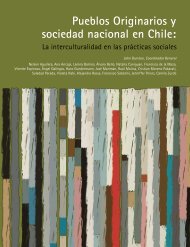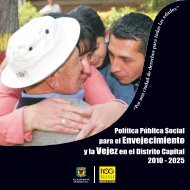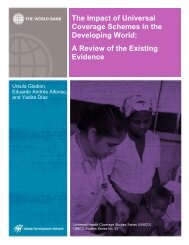11ZAQGM
11ZAQGM
11ZAQGM
Create successful ePaper yourself
Turn your PDF publications into a flip-book with our unique Google optimized e-Paper software.
Introduction<br />
IDENTIFYING BEST PRACTICE IN COMMUNITY-BASED SUSTAINABLE LAND<br />
MANAGEMENT IN SUB-SAHARAN AFRICA<br />
Land degradation is a serious problem in Sub-Saharan Africa, where up to two-thirds of the productive land area<br />
may be affected. Over 3% of agricultural gross domestic product (GDP) is lost annually as a direct result of soil and<br />
nutrient loss from poor land management practices, with associated economic costs estimated at US$9 billion per<br />
year. Communities suffer acutely from the resulting food and energy insecurity and foregone investments in social<br />
services and infrastructure.<br />
The drivers of unsustainable land management practices are complex, and practical policy responses require the<br />
active engagement of local communities and civil society organizations. Unfortunately, previous interventions to<br />
halt land degradation have tended to suffer from top-down planning processes, where land users are not actively<br />
involved in identifying problems and finding solutions. Many interventions have been sector-based, such as<br />
high-input approaches to increase agricultural production. These have met with limited success in addressing<br />
what is a multi-dimensional problem, and have typically minimized community participation.<br />
However, in recent years, the essential role of local and indigenous communities in sustainable land management has come<br />
to greater prominence. For example, the UN Convention to Combat Desertification explicitly recognizes the important<br />
role of community participation in sustainable land management and the fight against desertification. There is consensus<br />
now that local civil society groups and community-based organizations can provide a vehicle for local level experiences<br />
to contribute to an improved understanding of sustainable land management and to inform land management policies.<br />
What is required now is an effort to: i) identify and raise the profile of leading community-based sustainable land<br />
management solutions in Sub-Saharan Africa, ii) fill local capacity gaps, and iii) strengthen the voices of local and<br />
indigenous communities in a way that ensures that local civil society organizations contribute to the development<br />
of pro-poor, sustainable land management policies.<br />
In furtherance of this, the Equator Initiative partnership will lead a process to identify examples of local ingenuity,<br />
innovation and leadership in sustainable land management in Sub-Saharan Africa. Building on the experience of<br />
the Equator Prize, and working through its network of global partners, the Equator Initiative will recognize and<br />
raise the profile of community efforts to reduce poverty through sustainable land management. Themes of the<br />
prize are likely to include:<br />
• the integrated management of international river, lake and hydrogeological basins;<br />
• agroforestry and soil conservation;<br />
• rangelands use and fodder crops;<br />
• ecological monitoring, natural resource mapping, remote sensing, and early warning systems;<br />
• new and renewable energy sources and technologies;<br />
• sustainable agricultural farming systems.<br />
The process of selecting winners will be used to collect information to better understand how the interaction between<br />
policies, political processes and poverty reduction influences innovation and successful initiatives at the local level.<br />
Community-Based Sustainable Land Management: Best Practices in Drylands from the Equator Initiative<br />
4






